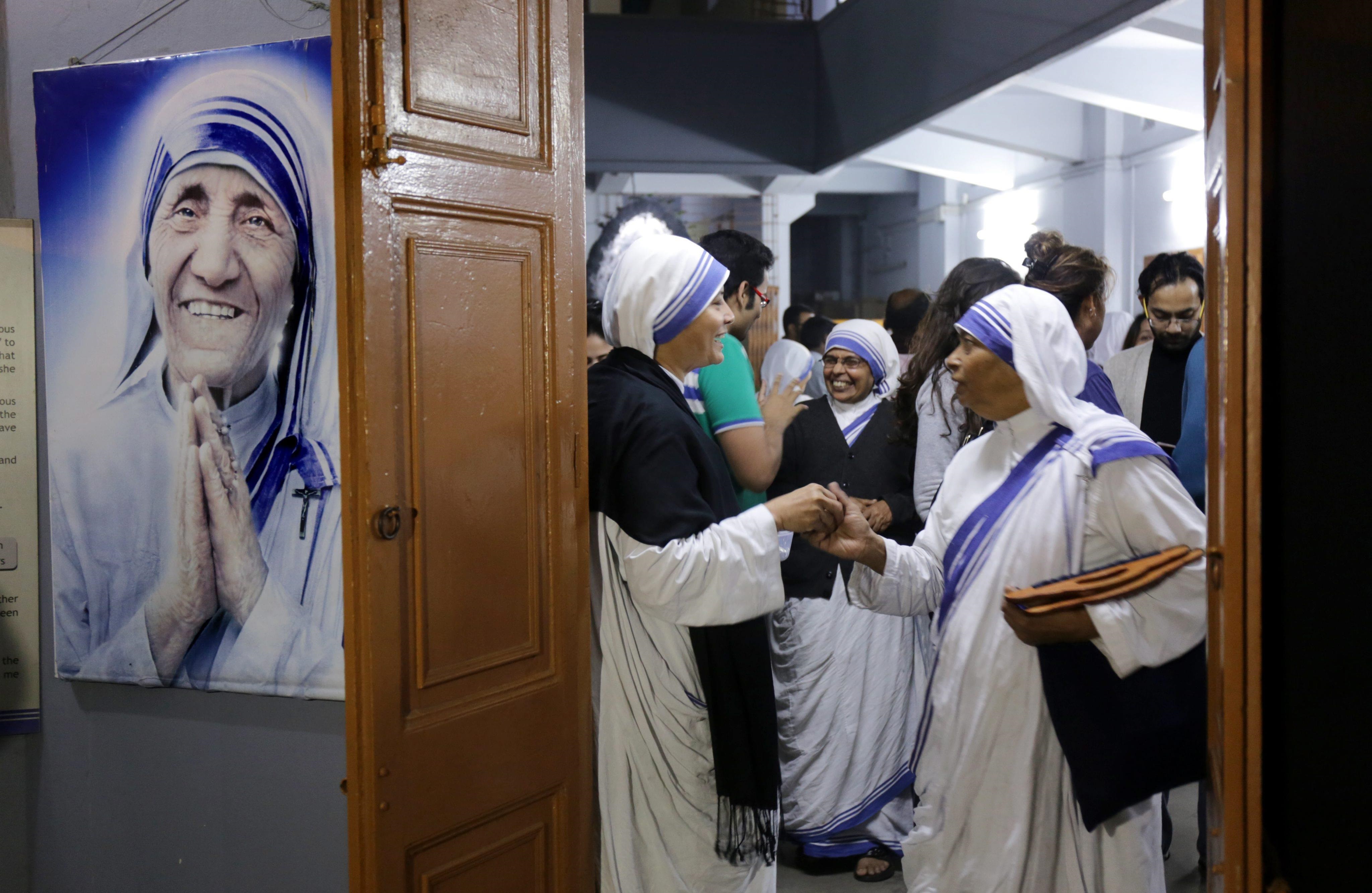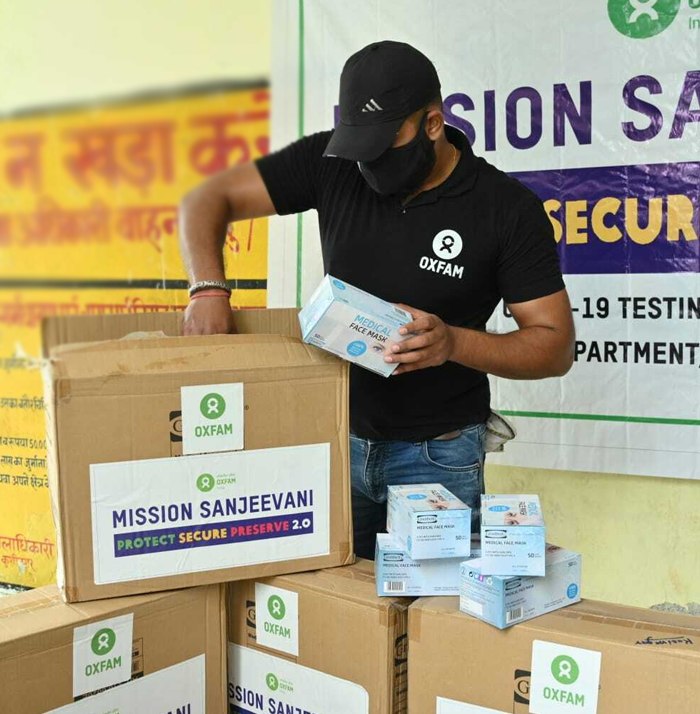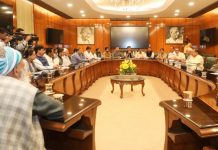
Recently, the government refused to renew the FCRA registration of Missionaries of Charity only to reverse its decision later. The government refusal to renew license meant the charity could no longer receive foreign funds. What is making Modi govt wary of NGOs, Bijoy Patro tries to find out
The last year ended on an unpleasant note for the Missionaries of Charity. Mandarins in the union home ministry in New Delhi informed the Catholic congregation set up by Saint Mother Teresa that they could no longer receive funds from outside the country. In essence, the validity of the certificate granted to them under the Foreign Currency Regulation Act (FCRA) had ceased.
The action raised eyebrows. The government’s political opponents, with some help from a section of the media, went to town castigating the government and the home ministry buckled. On 7 January in the new year, the same set of Babus restored the FCRA registration of the Missionaries of Charity.
The nuns should have seen Santa Clause coming with a very special gift just hours before Christmas. Just days earlier, a case was lodged against the organisation at the Makarpura police station in Gujarat under the Gujarat Freedom of Religion Act, 2003. The complainant, District Social Defence Officer, Mayank Trivedi, had alleged that the Missionaries of Charity were luring young girls to convert to Christianity, thus “hurting Hindu religious sentiments”.
It was said that this was unprecedented and the union government was being cussed because the Missionaries of Charity were a Christian group. Some even said that this was expected with the all-important elections to the Uttar Pradesh state assembly due in a matter of months. Everything sounded too logical to be disbelieved in the backdrop of the present BJP government’s history of polarisation.
But, was this really unprecedented?
Not really. What unfolded end-2021 has happened in a not-so-distant past. Today it is the Christian Missionaries of Charity. In yesteryears, it was a bunch of stubborn Gandhians.
The backdrop: In February 1982, the Indira Gandhi government set up a commission, headed by retired Rajasthan high court judge Purushottam Das Kudal, to probe into the working of three Gandhian institutions – the Gandhi Smarak Nidhi, the Gandhi Peace Foundation, Sarva Seva Sangh – and the Association of Voluntary Agencies for Rural Development (AVARD). Why? Because these organisations, led by people with a spine, had disagreed with Mrs Gandhi. They supported Jai Prakash Narayan in the days running up to the emergency.
A ghost was created. It was called the foreign hand (remember that bogey phrase?). It was said that these organisations received funding from external powers to wreak havoc in the country.
And what, for heaven’s sake, did the Kudal Commission find cognizable? Well, the sole case it made out involving a national security breach pertained to a map of the Ganga-Brahmaputra basin provided by noted journalist B G Verghese in his 1977 Coromandel lecture! Verghese was then associated with the Gandhi Peace Foundation.
All this time, non-government organisations (NGOs) were allowed to receive foreign funding without restrictions. They were only required to report the funds received and spent annually. The FCRA, so far, was focussed on political actors. But the emphasis of FCRA began to shift once the Kudal Commission put in its report in 1984. Now, its lens was centred on NGOs and civic activists. An amendment required NGOs to register and receive prior permission before accepting foreign funds.
It was clearly a witch hunt.

Fast forward to 2021 and you see the same pattern getting repeated: In simpler words, the past is part of our present.
But, the question that begs an answer is if that past and this present, in any way, shape our future?.
Your humble hack submits, yes it does. The actions of the government cannot be seen in isolation.
What follows is my assessment of what the home ministry has done through its notification. Let me, at the outset, make a disclosure: I personally know and have huge regard for the work of many of the NGOs whose FCRA certificates have expired (or, more aptly, made to expire).
Yours truly has been a spectator to the pain of migrants leaving Delhi as COVID-19 flared. There was no government around to tell them that they would be cared for. The only souls helping the marching migrants get their due, dignified entitlements were these NGOs. Listening to the ordeal of families walking to their distant villages was painful. The NGOs, their staff and volunteers were providing them with food and water and giving them hope in their struggles.
One of the many such organisations was Oxfam. The organisation merits mention because it is one of the organisations whose FCRA certificate was announced to have expired.
Oxfam’s staff worked tirelessly. Many Oxfam volunteers and staff, including its top leadership, got infected with COVID-19. They were reaching out to the migrants with food, personal protection equipment and safety kits and even cash so that people, particularly women, could prioritise their needs. In later months, Oxfam trained them to learn new livelihood skills when they were back home.
But there was something that the government was particularly disturbed about. That was Oxfam’s past track record of standing for civil liberties and advocating for the marginalised. As a young journalist, I remember how Oxfam helped me understand the bureaucratic inertia of garabi-hatao programmes. I learnt how Oxfam’s research was helping uncover desperate escapes from poverty.
The bureaucrats in the Home Ministry are very uneasy with this nature of work many NGOs do. They say it is political. In essence, anything that concerns civil society (different from civil society organisations) is a packet of trouble. The officers would rather have NGOs do the noble work of providing people with food, medicines, schooling, even clothes. But hey, isn’t that exactly what the Missionaries of Charity were doing?
The central argument that the government makes is an officious one. It says that there is a lack of regulation and that NGOs are running amok in the absence of any regulation and that there was an absence of diligence, and so, the government is merely trying to clean anaugean stable.
But haven’t the NGOs been the most regulated sector in the country forever?
These are tough times. People need to be able to fend and fight for themselves. The citizen must fight for her or his own rights. The Constitution gives us the right to live our lives with dignity. Every one of these words is anathema to the men and women in power.
Then, it was Mrs Gandhi. Today, it is Narendra Modi.
Which brings us back to the question: How does our past and our present shape our future?
This is where the much-engineered discourse on the anti-nationals comes handy. Foreign funding and anti-nationals are easy whipping boys. Bureaucrats aligned to Narendra Modi’s government today are chasing the very chimera that their predecessors did four decades ago under Mrs Gandhi.
NGOs derive legitimacy from the civil liberties that fuel modern democracies. Energising citizens to ask questions of their government, assert their right to hold the powerful accountable and demand transparency comes naturally to people in that space. It is this nature of the beast that the government has a problem with. This is why they see organisations like Oxfam as a thorn in the flesh.
There are many others in the long list who, like Oxfam, are doing yeoman’s service to uphold our democratic values. Of course, like all sectors, the civil society sector too has its share of black sheep. But the government painting all with the same brush is wrong.
(Bijoy Patro is editor of One World SouthAsia – owsa.in.)












